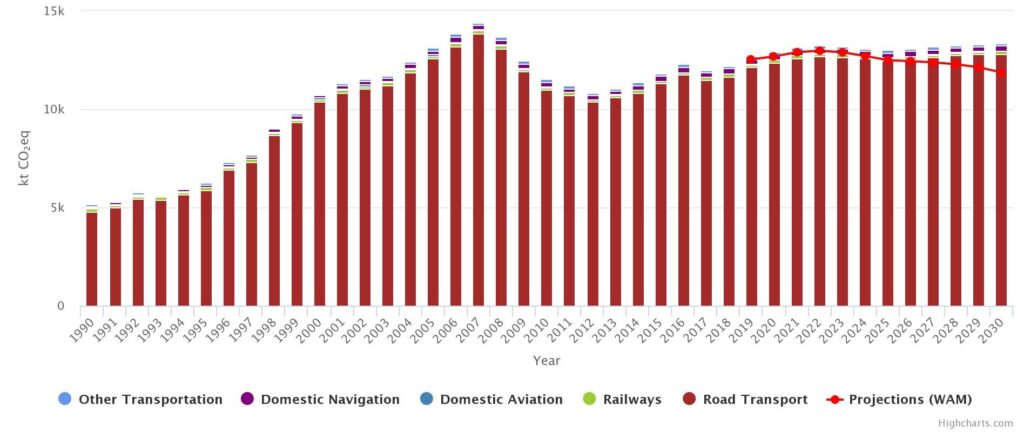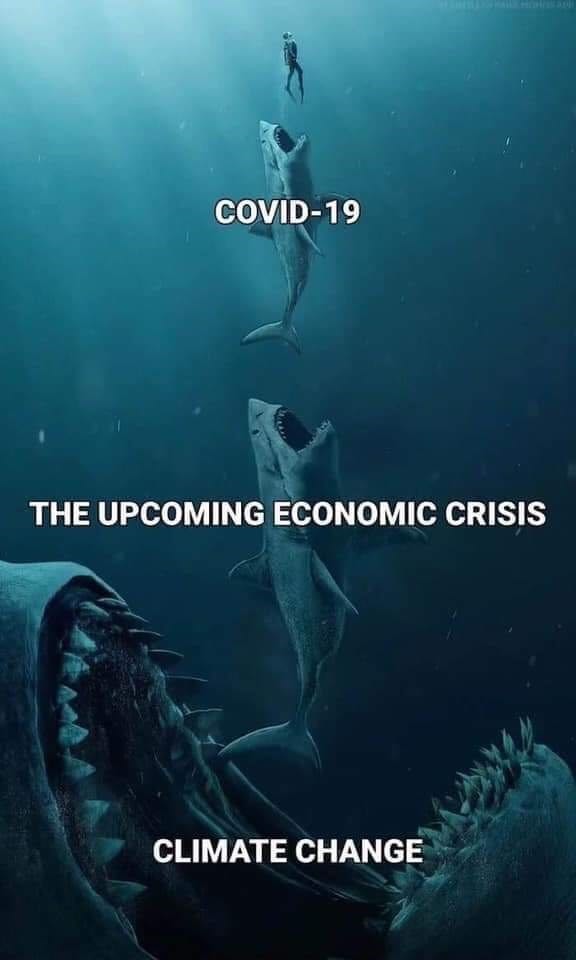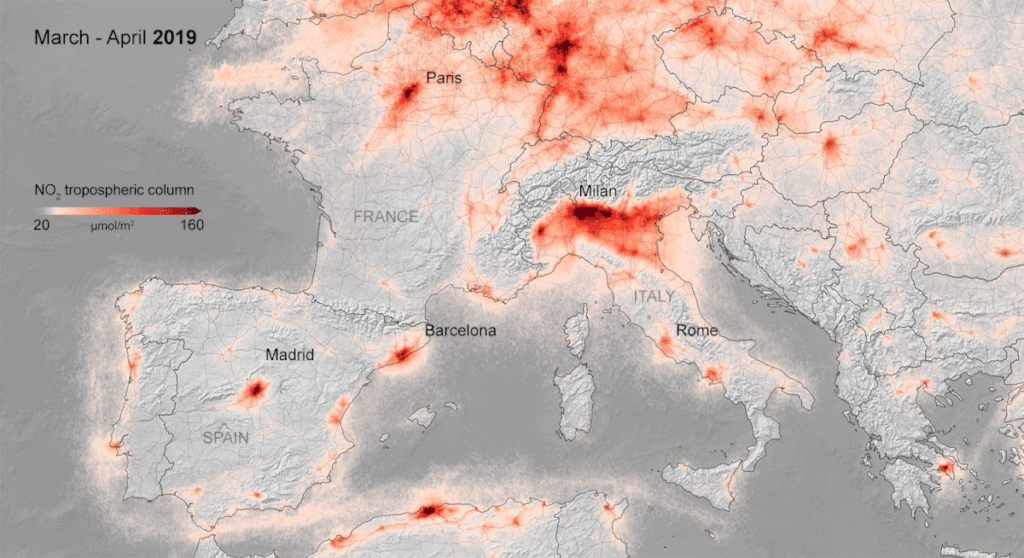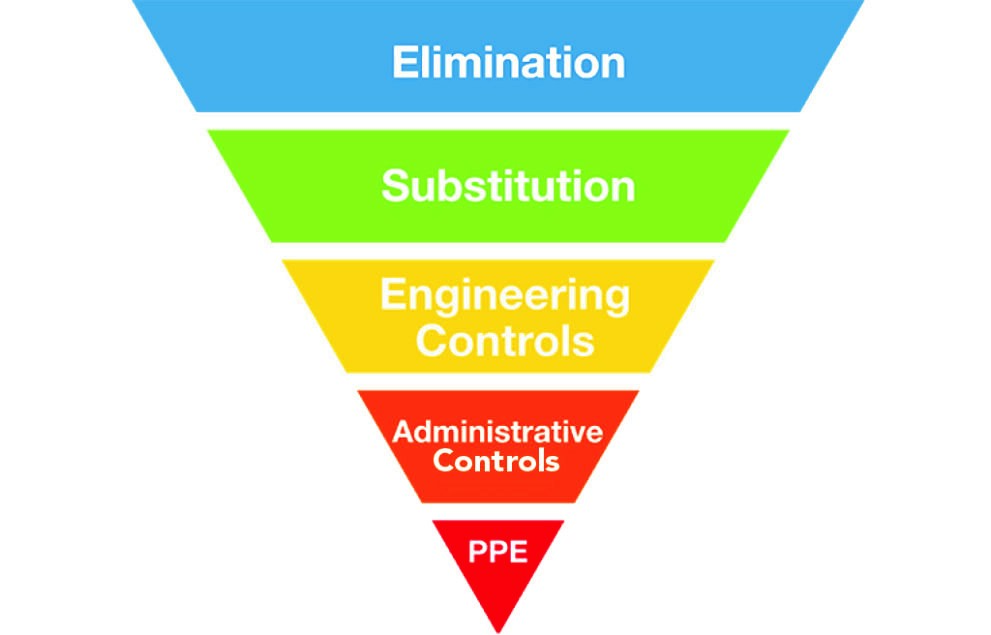You may have seen this meme. It certainly made me pause and think.
If we are reorganising our business, can we prepare for multiple threats at once?
The lockdown caused by COVID-19 has massively reduced the number of vehicles on the roads and the consequent noise, air pollution and greenhouse gas emissions.
The benefits can be sensed everyday with the raucous birdsong breaking the otherwise eerie quiet.
The reductions in NO2 can be seen from the European Space Agency satellite imagery:
http://www.esa.int/ESA_Multimedia/Images/2020/04/NO2_concentrations_over_Europe#.Xqw2gNhkkx8.link
Ireland’s transport emissions
After agriculture, transport is Ireland highest source of greenhouse gas emissions, surpassing even the energy industries. Ireland has a sorry record in its emissions reduction. Transport is an especially sad story with emissions increasing by 137% between 1990 and 2018. Transport emissions are on a rising trend. In 2018 emissions had risen in 5 of the previous 6 years. The EPA’s 2019 emissions projections estimate that transport emissions will only reduce by 1% in the best case “with additional measures (WAM) scenario”.

Transport Changes
One of the things the COVID-19 pandemic has taught us all is how productive remote working can be, from team meetings to remote audits. In disaster relief there is a principle of “building back better”. It’s also used in climate adaptation to increase resilience in our infrastructure. It’s something that needs to be considered in how we restructure our business practices. We need to consider the climate change reductions required in the next 30 years. We will need, collectively to reduce emissions by at least 80% by 2050.
Benefits of eliminating travel
The big benefit of eliminating travel is of course the travel time savings. Other benefits are savings due to reduced travel, accommodation and fuel costs, and a reduced risk of travel accidents. Not having to travel can also open a global market for your service if it can be provided remotely. There are also external benefits such as reduced noise greenhouse gas emissions and air pollution. The person to person contact is, of course, superior to interactions over a screen, especially when developing a rapport with new clients/colleagues. However, these benefits need to be considered alongside the costs of travel.
Reducing travel emissions
A pseudo -hierarchy of controls can be useful in considering how to reduce transport emissions:
Take home thought
The COVID-19 pandemic has forced us into remote working. As restrictions are lifted we need to carefully consider what elements we wish to retain in light of the tightened economic conditions and climate commitments.
If you are concerned about the future economic and climate challenges, we can assist you in business continuity planning, emergency response and disaster recovery. Antaris develops plans for businesses in accordance with the Business Continuity Management standard ISO 22301:2019 and the most recent business continuity guidance document ISO 22313:2020.
See https://antarisconsulting.com/business-continuity/ or contact us at info@antarisconsulting.com
Antaris is currently offering a course based on workplace practice in response to COVID-19, please click here for more details.











